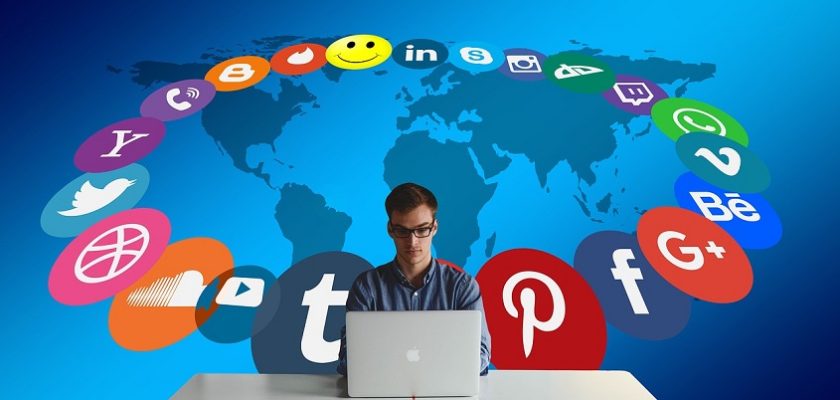The Effects of Social Media on Mental Health and Well-Being
- Updated on: May 7, 2025
Vishakha Yadav is a biotechnologist with Masters's degree in Biotechnology. She has pursued her Bachelors's and Masters's degrees from Amity University, Noida. She aspires to contribute to the field of healthcare and research. Currently, she is associated with Maxinov Solutions Pvt. Ltd. as Research Analyst and a medical content writer at MedicalNewsHome.
- Published on Jan 30, 2023

Table of Content
Social media refers to online platforms that allow users to interact and share content, such as text, images, and videos. Mental health and well-being refer to a person’s overall emotional, psychological, and social well-being. Social media can have both positive and negative effects on mental health and well-being. It can provide connection and support, but also contribute to feelings of isolation, cyberbullying and negatively impact self-esteem.
Positive effects of social media on mental health and well-being
- Connection and support from social media communities: Social media can provide a sense of community and connection for individuals who may feel isolated or marginalized in their offline lives.
- Access to mental health resources and information: Social media can serve as a source of information and resources for individuals seeking information about mental health and well-being.
- Increased self-expression and self-identity: Social media can provide an avenue for self-expression and can help individuals explore and understand their sense of self.
- Raising awareness and reducing stigma around mental health: Social media can be used as a tool to raise awareness about mental health issues and reduce the stigma associated with seeking help.
- Virtual support groups and therapy sessions: Social media can facilitate virtual support groups and therapy sessions, making it easier for people to access the help they need.
Negative effects of social media on mental health and well-being
- Cyberbullying and harassment: Social media can provide a platform for bullying and harassment, which can have serious negative effects on individuals’ mental health and well-being.
- Social comparison and self-esteem issues: Social media can lead to feelings of inadequacy, self-doubt, and low self-esteem as individuals compare their lives to the often-idealized versions of others presented on social media.
- Fear of missing out (FOMO) and social isolation: Social media can contribute to feelings of FOMO and social isolation, as individuals become more aware of the social activities and experiences they are not a part of.
- Disturbance in sleep patterns: excessive use of social media has been linked to sleep disturbances, which can lead to long-term mental and physical health problems.
- Dependence on social media: Overuse of social media can lead to addiction-like behaviors, and withdrawal symptoms can occur when access to social media is restricted.
- Spread of misinformation and fake news: Social media platforms can be a breeding ground for misinformation and fake news, which can cause confusion, distress, and anxiety among users.
Impact on specific population groupsTop of Form
- Children and adolescents: Social media can have a significant impact on the mental health and well-being of children and adolescents, as they are still developing their sense of self and are more vulnerable to cyberbullying and harassment.
- Older adults: Social media can provide a sense of connection and community for older adults, however, they may also be more vulnerable to online scams and misinformation.
- Individuals with pre-existing mental health conditions: Social media can exacerbate pre-existing mental health conditions, such as anxiety and depression, and may make it more difficult for individuals to manage their symptoms.
- Individuals with cognitive decline: Social media can be challenging for individuals with cognitive decline, who may have difficulty navigating and understanding the information presented on social media platforms.
- Individuals with addictive personalities:Social media can be a trigger for individuals with addictive personalities, leading to overuse and negative impact on their mental health and well-being.
- Individuals from marginalized communities: Social media can be a source of support for individuals from marginalized communities, however, it also can be a breeding ground for hate speech and discrimination, leading to further marginalization and negative impact on their mental health and well-being.
Strategies for managing social media use and its effects on mental health and well-being
- Setting boundaries and limiting use: Setting time limits on social media use can help individuals manage their time and reduce negative effects on mental health and well-being.
- Finding a balance between online and offline activities: Finding a balance between online and offline activities can help individuals maintain a sense of connection and community while also reducing feelings of isolation.
- Finding supportive communities and resources: Joining supportive communities and following credible resources on social media can provide individuals with the support they need.
- Seeking professional help when needed: Seeking professional help when needed can be beneficial for individuals who are experiencing serious negative effects on their well-being as a result of social media use.
- Use of digital wellness tools: Using digital wellness tools such as screen time and social media usage trackers, which can help individuals understand and manage their social media use.
- Being mindful of the information and content consumed: Being mindful of the information and content consumed on social media, and avoiding or limiting exposure to misinformation, fake news and hate speech.
- Taking breaks from social media: Taking regular breaks from social media can help individuals reduce feelings of FOMO, and allow them to focus on other activities that promote well-being and a balanced lifestyle.


